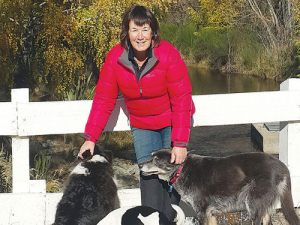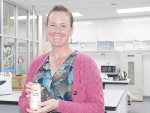With 62,000 New Zealanders living and working rurally, their communities are the backbone of the economy, but they are poorly supported healthwise.
This is the message from Otago University researcher Dr Fiona Doolan-Noble.
The senior research fellow in the Department of General Practice and Rural Health is developing a national network aimed at sparking interest in this field; she is co-ordinating various research projects in rural health, hoping to get concrete improvements in rural health provision.
With a nursing background and a PhD in primary health, Doolan-Noble was raised in a farming community in the UK, and still lives rurally, in Maniototo.
She’s recruiting collaborators from such disciplines as business, economics and social geography, plus health professionals, rural organisations and “most importantly, rural communities”.
“If this whole thing is going to work and make a difference for the health of rural communities and for health service provision, we need to have that level of engagement with rural communities,” she says.
She will also be seeking sponsorship and funding from businesses and philanthropists. Little research has been done on rural health issues, despite rural communities being pivotal to the NZ economy.
Doolan-Noble’s efforts have recently been recognised in the Health Research Excellence Awards: a grant of $100,000 has enabled her to employ a co-ordinator to get the network infrastructure up and running. Georgina Richardson, trained in bioethics, also has a farming background.
The network is active on social media and will soon pop up at field days and A&P shows, asking rural people directly what health issues are important.
“I can come up with ideas that interest me, but they might not actually be the ideas that make a difference for rural where we want to make a difference; rural deserves it,” says Doolan-Noble.
The network already has two projects underway.
One, funded by the Southland Medical Foundation, is looking at rural people with implanted cardiac defibrillators (a form of pacemaker). Christchurch is the only South Island location where these be implanted.
“We’re looking at what it’s like living with one of those defibrillators in rural Southland because it’s the furthest away from Christchurch you’re going to get,” Doolan-Noble explains.
“So there may be a feeling of not feeling safe because you’re away from the expertise of the implanting centre. We’ve been talking to people who have them, and their partners, about what life’s like. We’re about halfway through our data collection.”
The other study looks at life for nurses living in rural communities. Doolan-Noble says overseas studies suggest this comes with “a level of moral distress,” due to the feeling of wanting to supply a service but being unable to because of the complications of the location.
“As a nurse, when you live in a rural community and work as a health professional, those privacy relationship boundaries can sometimes be challenging,” she says.
“We don’t know if rural nurses feel supported. And if they don’t, what would they like, to enable them to feel more supported?”
Further studies awaiting funding include one aimed at investigating the various sources of stress that could impact rural people.
Doolan-Noble is excited that her project is gaining momentum, after spending “over a year working the proposal up”.
“To get it funded is very special because rural doesn’t attract the funding those other areas of health research attract normally.”











